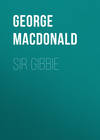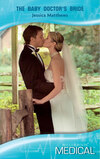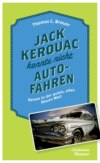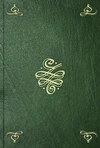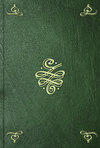Kitabı oku: «Sir Gibbie», sayfa 15
"Keep yer ee upon him, Janet," he said, turning in the doorway. "Dinna lowse sicht o' him afore I come back wi' the constable. Dinna lippen. I s' be back in three hoors like."
With these words he turned finally, and disappeared.
The mortification of Angus as he lay thus trapped in the den of the beast-loon, at being taken and bound by an old man, a woman, and a collie dog, was extreme. He went over the whole affair again and again in his mind, ever with a fresh burst of fury. It was in vain he excused himself on the ground that the attack had been so sudden and treacherous, and the precautions taken so complete. He had proved himself an ass, and the whole country would ring with mockery of him! He had sense enough, too, to know that he was in a serious as well as ludicrous predicament: he had scarcely courage enough to contemplate the possible result. If he could but get his hands free, it would be easy to kill Oscar and disable Janet. For the idiot, he counted him nothing. He had better wait, however, until there should be no boiling liquid ready to her hand.
Janet set out the dinner, peeled some potatoes, and approaching Angus, would have fed him. In place of accepting her ministration, he fell to abusing her with the worst language he could find. She withdrew without a word, and sat down to her own dinner; but, finding the torrent of vituperation kept flowing, rose again, and going to the door, fetched a great jug of cold water from the pail that always stood there, and coming behind her prisoner, emptied it over his face. He gave a horrid yell taking the douche for a boiling one.
"Ye needna cry oot like that at guid cauld watter," said Janet. "But ye'll jist absteen frae ony mair sic words i' my hearin', or ye s' get the like ilka time ye brak oot." As she spoke, she knelt, and wiped his face and head with her apron.
A fresh oath rushed to Angus's lips, but the fear of a second jugful made him suppress it, and Janet sat down again to her dinner. She could scarcely eat a mouthful, however, for pity of the rascal beside her, at whom she kept looking wistfully without daring again to offer him anything.
While she sat thus, she caught a swift investigating look he cast on the cords that bound his hands, and then at the fire. She perceived at once what was passing in his mind. Rising, she went quickly to the byre, and returned immediately with a chain they used for tethering the cow. The end of it she slipt deftly round his neck, and made it fast, putting the little bar through a link.
"Ir ye gauin' to hang me, ye she-deevil?" he cried, making a futile attempt to grasp the chain with his bound hands.
"Ye'll be wantin' a drappy mair cauld watter, I'm thinkin'," said Janet.
She stretched the chain to its length, and with a great stone drove the sharp iron stake at the other end of it, into the clay-floor. Fearing next that, bound as his hands were, he might get a hold of the chain and drag out the stake, or might even contrive to remove the rope from his feet with them, or that he might indeed with his teeth undo the knot that confined his hands themselves—she got a piece of rope, and made a loop at the end of it, then watching her opportunity passed the loop between his hands, noosed the other end through it, and drew the noose tight. The free end of the rope she put through the staple that received the bolt of the cottage-door, and gradually, as he grew weary in pulling against her, tightened the rope until she had his arms at their stretch beyond his head. Not quite satisfied yet, she lastly contrived, in part by setting Oscar to occupy his attention, to do the same with his feet, securing them to a heavy chest in the corner opposite the door, upon which chest she heaped a pile of stones. If it pleased the Lord to deliver them from this man, she would have her honest part in the salvation! And now at last she believed she had him safe.
Gibbie had fallen asleep, but he now woke and she gave him his dinner; then redd up, and took her Bible. Gibbie had lain down again, and she thought he was asleep.
Angus grew more and more uncomfortable, both in body and in mind. He knew he was hated throughout the country, and had hitherto rather enjoyed the knowledge; but now he judged that the popular feeling, by no means a mere prejudice, would tell against him committed for trial. He knew also that the magistrate to whom Robert had betaken himself, was not over friendly with his master, and certainly would not listen to any intercession from him. At length, what with pain, hunger, and fear, his pride began to yield, and, after an hour had passed in utter silence, he condescended to parley.
"Janet Grant," he said, "lat me gang, an' I'll trouble you or yours no more."
"Wadna ye think me some fule to hearken till ye?" suggested Janet.
"I'll sweir ony lawfu' aith 'at ye like to lay upo' me," protested Angus, "'at I'll dee whatever ye please to require o' me."
"I dinna doobt ye wad sweir; but what neist?" said Janet.
"What neist but ye'll lowse my han's?" rejoined Angus.
"It's no mainner o' use mentionin' 't," replied Janet; "for, as ye ken, I'm un'er authority, an' yersel' h'ard my man tell me to tak unco percaution no to lat ye gang; for verily, Angus, ye hae conduckit yersel' this day more like ane possessed wi' a legion, than the douce faimily man 'at ye're supposit by the laird, yer maister, to be."
"Was ever man," protested Angus "made sic a fule o', an' sae misguidit, by a pair o' auld cottars like you an' Robert Grant!"
"Wi' the help o' the Lord, by means o' the dog," supplemented Janet. "I wuss frae my hert I hed the great reid draigon i' yer place, an' I wad watch him bonny, I can tell ye, Angus Mac Pholp. I wadna be clear aboot giein him his denner, Angus."
"Let me gang, wuman, wi' yer reid draigons! I'll hairm naebody. The puir idiot's no muckle the waur, an' I'll tak mair tent whan I fire anither time."
"Wiser fowk nor me maun see to that," answered Janet.
"Hoots, wuman! it was naething but an accident."
"I kenna; but it'll be seen what Gibbie says."
"Awva! his word's guid for naething."
"For a penny, or a thoosan' poun'."
"My wife 'll be oot o' her wuts," pleaded Angus.
"Wad ye like a drink o' milk?" asked Janet, rising.
"I wad that," he answered.
She filled her little teapot with milk, and he drank it from the spout, hoping she was on the point of giving way.
"Noo," she said, when he had finished his draught, "ye maun jist mak the best o' it, Angus. Ony gait, it's a guid lesson in patience to ye, an' that ye haena had ower aften, I'm thinkin'—Robert'll be here er lang."
With these words she set down the teapot, and went out: it was time to milk her cow.
In a little while Gibbie rose, tried to walk, but failed, and getting down on his hands and knees, crawled out after her. Angus caught a glimpse of his face as he crept past him, and then first recognized the boy he had lashed. Not compunction, but an occasional pang of dread lest he should have been the cause of his death, and might come upon his body in one of his walks, had served so to fix his face in his memory, that, now he had a near view of him, pale with suffering and loss of blood and therefore more like his former self, he knew him beyond a doubt. With a great shoot of terror he concluded that the idiot had been lying there silently gloating over his revenge, waiting only till Janet should be out of sight, and was now gone after some instrument wherewith to take it. He pulled and tugged at his bonds, but only to find escape absolutely hopeless. In gathering horror, he lay moveless at last, but strained his hearing towards every sound.
Not only did Janet often pray with Gibbie, but sometimes as she read, her heart would grow so full, her soul be so pervaded with the conviction, perhaps the consciousness, of the presence of the man who had said he would be always with his friends, that, sitting there on her stool, she would begin talking to him out of the very depth of her life, just as if she saw him in Robert's chair in the ingle-neuk, at home in her cottage as in the house where Mary sat at his feet and heard his word. Then would Gibbie listen indeed, awed by very gladness. He never doubted that Jesus was there, or that Janet saw him all the time although he could not.
This custom of praying aloud, she had grown into so long before Gibbie came to her, and he was so much and such a child, that his presence was no check upon the habit. It came in part from the intense reality of her belief, and was in part a willed fostering of its intensity. She never imagined that words were necessary; she believed that God knew her every thought, and that the moment she lifted up her heart, it entered into communion with him; but the very sound of the words she spoke seemed to make her feel nearer to the man who, being the eternal Son of the Father, yet had ears to hear and lips to speak, like herself. To talk to him aloud, also kept her thoughts together, helped her to feel the fact of the things she contemplated, as well as the reality of his presence.
Now the byre was just on the other side of the turf wall against which was the head of Gibbie's bed, and through the wall Gibbie had heard her voice, with that something in the tone of it which let him understand she was not talking to Crummie, but to Crummie's maker; and it was therefore he had got up and gone after her. For there was no reason, so far as he knew or imagined, why he should not hear, as so many times before, what she was saying to the Master. He supposed that as she could not well speak to him in the presence of a man like Angus, she had gone out to the byre to have her talk with him there. He crawled to the end of the cottage so silently that she heard no sound of his approach. He would not go into the byre, for that might disturb her, for she would have to look up to know that it was only Gibbie; he would listen at the door. He found it wide open, and peeping in, saw Crummie chewing away, and Janet on her knees with her forehead leaning against the cow and her hands thrown up over her shoulder. She spoke in such a voice of troubled entreaty as he had never heard from her before, but which yet woke a strange vibration of memory in his deepest heart.—Yes, it was his father's voice it reminded him of! So had he cried in prayer the last time he ever heard him speak. What she said was nearly this:
"O Lord, gin ye wad but say what ye wad hae deen! Whan a body disna ken yer wull, she's jist driven to distraction. Thoo knows, my Maister, as weel's I can tell ye, 'at gien ye said till me, 'That man's gauin' to cut yer thro't: tak the tows frae him, an' lat him up,' I wad rin to dee't. It's no revenge, Lord; it's jist 'at I dinna ken. The man's dune me no ill, 'cep' as he's sair hurtit yer bonnie Gibbie. It's Gibbie 'at has to forgie 'im an' syne me. But my man tellt me no to lat him up, an' hoo am I to be a wife sic as ye wad hae, O Lord, gien I dinna dee as my man tellt me! It wad ill befit me to lat my auld Robert gang sae far wantin' his denner, a' for naething. What wad he think whan he cam hame! Of coorse, Lord, gien ye tellt me, that wad mak a' the differ, for ye're Robert's maister as weel's mine, an' your wull wad saitisfee him jist as weel's me. I wad fain lat him gang, puir chiel! but I daurna. Lord, convert him to the trowth. Lord, lat him ken what hate is.—But eh, Lord! I wuss ye wad tell me what to du. Thy wull's the beginnin' an' mids an' en' o' a' thing to me. I'm wullin' eneuch to lat him gang, but he's Robert's pris'ner an' Gibbie's enemy; he's no my pris'ner an' no my enemy, an' I dinna think I hae the richt. An' wha kens but he micht gang shottin' mair fowk yet, 'cause I loot him gang!—But he canna shot a hare wantin' thy wull, O Jesus, the Saviour o' man an' beast; an' ill wad I like to hae a han' i' the hangin' o' 'm. He may deserve 't, Lord, I dinna ken; but I'm thinkin' ye made him no sae weel tempered—as my Robert, for enstance."
Here her voice ceased, and she fell a moaning.
Her trouble was echoed in dim pain from Gibbie's soul. That the prophetess who knew everything, the priestess who was at home in the very treasure-house of the great king, should be thus abandoned to dire perplexity, was a dreadful, a bewildering fact. But now first he understood the real state of the affair in the purport of the old man's absence; also how he was himself potently concerned in the business: if the offence had been committed against Gibbie, then with Gibbie lay the power, therefore the duty of forgiveness. But verily Gibbie's merit and his grace were in inverse ratio. Few things were easier to him than to love his enemies, and his merit in obeying the commandment was small indeed. No enemy had as yet done him, in his immediate person, the wrong he could even imagine it hard to forgive. No sooner had Janet ceased than he was on his way back to the cottage: on its floor lay one who had to be waited upon with forgiveness.
Wearied with futile struggles, Angus found himself compelled to abide his fate, and was lying quite still when Gibbie re-entered. The boy thought he was asleep, but on the contrary he was watching his every motion, full of dread. Gibbie went hopping upon one foot to the hole in the wall where Janet kept the only knife she had. It was not there. He glanced round, but could not see it. There was no time to lose. Robert's returning steps might be heard any moment, and poor Angus might be hanged—only for shooting Gibbie! He hopped up to him and examined the knots that tied his hands: they were drawn so tight—in great measure by his own struggles—and so difficult to reach from their position, that he saw it would take him a long time to undo them. Angus thought, with fresh horror, he was examining them to make sure they would hold, and was so absorbed in watching his movements that he even forgot to curse, which was the only thing left him. Gibbie looked round again for a moment, as if in doubt, then darted upon the tongs—there was no poker—and thrust them into the fire, caught up the asthmatic old bellows, and began to blow the peats. Angus saw the first action, heard the second, and a hideous dismay clutched his very heart: the savage fool was about to take his revenge in pinches with the red hot tongs! He looked for no mercy—perhaps felt that he deserved none. Manhood held him silent until he saw him take the implement of torture from the fire, glowing, not red but white hot, when he uttered such a terrific yell, that Gibbie dropped the tongs—happily not the hot ends—on his own bare foot, but caught them up again instantly, and made a great hop to Angus: if Janet had heard that yell and came in, all would be spoilt. But the faithless keeper began to struggle so fiercely, writhing with every contortion, and kicking with every inch, left possible to him, that Gibbie hardly dared attempt anything for dread of burning him, while he sent yell after yell "as fast as mill-wheels strike." With a sudden thought Gibbie sprang to the door and locked it, so that Janet should not get in, and Angus, hearing the bolt, was the more convinced that his purpose was cruel, and struggled and yelled, with his eyes fixed on the glowing tongs, now fast cooling in Gibbie's hand. If instead of glowering at the tongs, he had but lent one steadfast regard to the face of the boy whom he took for a demoniacal idiot, he would have seen his supposed devil smile the sweetest of human, troubled, pitiful smiles. Even then, I suspect, however, his eye being evil, he would have beheld in the smile only the joy of malice in the near prospect of a glut of revenge.
In the mean time Janet, in her perplexity, had, quite forgetful of the poor cow's necessities, abandoned Crummie, and wandered down the path as far as the shoulder her husband must cross ascending from the other side: thither, a great rock intervening, so little of Angus's cries reached, that she heard nothing through the deafness of her absorbing appeal for direction to her shepherd, the master of men.
Gibbie thrust the tongs again into the fire, and while blowing it, bethought him that it might give Angus confidence if he removed the chain from his neck. He laid down the bellows, and did so. But to Angus the action seemed only preparatory to taking him by the throat with the horrible implement. In his agony and wild endeavour to frustrate the supposed intent, he struggled harder than ever. But now Gibbie was undoing the rope fastened round the chest. This Angus did not perceive, and when it came suddenly loose in the midst of one of his fierce straining contortions, the result was that he threw his body right over his head, and lay on his face for a moment confused. Gibbie saw his advantage. He snatched his clumsy tool out of the fire, seated himself on the corresponding part of Angus's person, and seizing with the tongs the rope between his feet, held on to both, in spite of his heaves and kicks. In the few moments that passed while Gibbie burned through a round of the rope, Angus imagined a considerable number of pangs; but when Gibbie rose and hopped away, he discovered that his feet were at liberty, and scrambled up, his head dizzy, and his body reeling. But such was then the sunshine of delight in Gibbie's countenance that even Angus stared at him for a moment—only, however, with a vague reflection on the inconsequentiality of idiots, to which succeeded the impulse to take vengeance upon him for his sufferings. But Gibbie still had the tongs, and Angus's hands were still tied. He held them out to him. Gibbie pounced upon the knots with hands and teeth. They occupied him some little time, during which Angus was almost compelled to take better cognizance of the face of the savage; and dull as he was to the good things of human nature, he was yet in a measure subdued by what he there looked upon rather than perceive; while he could scarcely mistake the hearty ministration of his teeth and nails! The moment his hands were free, Gibbie looked up at him with a smile, and Angus did not even box his ears. Holding by the wall, Gibbie limped to the door and opened it. With a nod meant for thanks, the gamekeeper stepped out, took up his gun from where it leaned against the wall, and hurried away down the hill. A moment sooner and he would have met Janet; but she had just entered the byre again to milk poor Crummie.
When she came into the cottage, she stared with astonishment to see no Angus on the floor. Gibbie, who had lain down again in much pain, made signs that he had let him go: whereupon such a look of relief came over her countenance that he was filled with fresh gladness, and was if possible more satisfied still with what he had done.
It was late before Robert returned—alone, weary, and disappointed. The magistrate was from home; he had waited for him as long as he dared; but at length, both because of his wife's unpleasant position, and the danger to himself if he longer delayed his journey across the mountain, seeing it threatened a storm, and there was no moon, he set out. That he too was relieved to find no Angus there, he did not attempt to conceal. The next day he went to see him, and told him that, to please Gibbie, he had consented to say nothing more about the affair. Angus could not help being sullen, but he judged it wise to behave as well as he could, kept his temper therefore, and said he was sorry he had been so hasty, but that Robert had punished him pretty well, for it would be weeks before he recovered the blow on the head he had given him. So they parted on tolerable terms, and there was no further persecution of Gibbie from that quarter.
It was some time before he was able to be out again, but no hour spent with Janet was lost.
CHAPTER XXVII.
A VOICE
That winter the old people were greatly tried with rheumatism; for not only were the frosts severe, but there was much rain between. Their children did all in their power to minister to their wants, and Gibbie was nurse as well as shepherd. He who when a child had sought his place in the live universe by attending on drunk people and helping them home through the midnight streets, might have felt himself promoted considerably in having the necessities of such as Robert and Janet to minister to, but he never thought of that. It made him a little mournful sometimes to think that he could not read to them. Janet, however, was generally able to read aloud. Robert, being also asthmatic, suffered more than she, and was at times a little impatient.
Gibbie still occupied his heather-bed on the floor, and it was part of his business, as nurse, to keep up a good fire on the hearth: peats, happily, were plentiful. Awake for this cause, he heard in the middle of one night, the following dialogue between the husband and wife.
"I'm growin' terrible auld, Janet," said Robert. "It's a sair thing this auld age, an' I canna bring mysel' content wi' 't. Ye see I haena been used till't."
"That's true, Robert," answered Janet. "Gien we had been born auld, we micht by this time hae been at hame wi't. But syne what wad hae come o' the gran' delicht o' seein' auld age rin hirplin awa' frae the face o' the Auncient o' Days?"
"I wad fain be contentit wi' my lot, thouch," persisted Robert; "but whan I fin' mysel' sae helpless like, I canna get it oot o' my heid 'at the Lord has forsaken me, an' left me to mak an ill best o' 't wantin' him."
"I wadna lat sic a thoucht come intil my heid, Robert, sae lang as I kenned I cudna draw breath nor wag tongue wantin' him, for in him we leeve an' muv an' hae oor bein'. Gien he be the life o' me, what for sud I trible mysel' aboot that life?"
"Ay, lass! but gien ye hed this ashmy, makin' a' yer breist as gien 'twar lined wi' the san' paper 'at they hed been lichtin' a thoosan' or twa lucifer spunks upo'—ye micht be driven to forget 'at the Lord was yer life—for I can tell ye it's no like haein his breith i' yer nostrils."
"Eh, my bonny laad!" returned Janet with infinite tenderness, "I micht weel forget it! I doobt I wadna be half sae patient as yersel'; but jist to help to haud ye up, I s' tell ye what I think I wad ettle efter. I wad say to mysel' Gien he be the life o' me, I hae no business wi' ony mair o' 't nor he gies me. I hae but to tak ae breath, be 't hard, be 't easy, ane at a time, an' lat him see to the neist himsel'. Here I am, an' here's him; an' 'at he winna lat's ain wark come to ill, that I'm weel sure o'. An' ye micht jist think to yersel', Robert, 'at as ye are born intil the warl', an' here ye are auld intil't—ye may jist think, I say, 'at hoo ye're jist new-born an auld man, an' beginnin' to grow yoong, an' 'at that's yer business. For naither you nor me can be that far frae hame, Robert, an' whan we win there we'll be yoong eneuch, I'm thinkin'; an' no ower yoong, for we'll hae what they say ye canna get doon here—a pair o' auld heids upo' yoong shoothers."
"Eh! but I wuss I may hae ye there, Janet, for I kenna what I wad do wantin' ye. I wad be unco stray up yon'er, gien I had to gang my lane, an' no you to refar till, 'at kens the w'ys o' the place."
"I ken no more about the w'ys o' the place nor yersel', Robert, though I'm thinkin' they'll be unco quaiet an' sensible, seein' 'at a' there maun be gentle fowk. It's eneuch to me 'at I'll be i' the hoose o' my Maister's father; an' my Maister was weel content to gang to that hoose; an' it maun be something by ordinar' 'at was fit for him. But puir simple fowk like oorsel's 'ill hae no need to hing down the heid an' luik like gowks 'at disna ken mainners. Bairns are no expeckit to ken a' the w'ys o' a muckle hoose 'at they hae never been intil i' their lives afore."
"It's no that a'thegither 'at tribles me, Janet; it's mair 'at I'll be expeckit to sing an' luik pleased-like, an' I div not ken hoo it'll be poassible, an' you naegait 'ithin my sicht or my cry, or the hearin' o' my ears."
"Div ye believe this, Robert'—at we're a' ane, jist ane, in Christ Jesus?"
"I canna weel say. I'm no denyin' naething 'at the buik tells me; ye ken me better nor that, Janet; but there's mony a thing it says 'at I dinna ken whether I believe't 'at my ain han', or whether it be only at a' thing 'at ye believe, Janet, 's jist to me as gien I believet it mysel'; an' that's a sair thought, for a man canna be savet e'en by the proxy o' 's ain wife."
"Weel, ye're just muckle whaur I fin' mysel' whiles, Robert; an' I comfort mysel' wi' the houp 'at we'll ken the thing there, 'at maybe we're but tryin' to believe here. But ony gait ye hae pruv't weel 'at you an' me's ane, Robert. Noo we ken frae Scriptur' 'at the Maister cam to mak aye ane o' them 'at was at twa; an' we ken also 'at he conquered Deith; sae he wad never lat Deith mak the ane 'at he had made ane, intil twa again: it's no rizon to think it. For oucht I ken, what luiks like a gangin' awa may be a comin' nearer. An' there may be w'ys o' comin' nearer till ane anither up yon'er 'at we ken naething aboot doon here. There's that laddie, Gibbie: I canna but think 'at gien he hed the tongue to speyk, or aiven gien he cud mak' ony soon' wi' sense intil't, like singin', say, he wad fin' himsel' nearer till's nor he can i' the noo. Wha kens but them 'at's singin' up there afore the throne, may sing so bonny, 'at, i' the pooer o' their braw thouchts, their verra sangs may be like laidders for them to come doon upo', an' hing aboot them 'at they hae left ahin' them, till the time comes for them to gang an' jine them i' the green pasturs aboot the tree o' life."
More of like talk followed, but these words concerning appropinquation in song, although their meaning was not very clear, took such a hold of Gibbie that he heard nothing after, but fell asleep thinking about them.
In the middle of the following night, Janet woke her husband.
"Robert! Robert!" she whispered in his ear, "hearken. I'm thinkin' yon maun be some wee angel come doon to say, 'I ken ye, puir fowk.'"
Robert, scarce daring to draw his breath listened with his heart in his mouth. From somewhere, apparently within the four walls of the cottage, came a low lovely sweet song—something like the piping of a big bird, something like a small human voice.
"It canna be an angel," said Robert at length, "for it's singin' 'My Nannie's Awa'.'"
"An' what for no an angel?" returned Janet. "Isna that jist what ye micht be singin' yersel', efter what ye was sayin' last nicht? I'm thinkin' there maun be a heap o' yoong angels up there, new deid, singin', 'My Nannie's Awa'.'"
"Hoot, Janet! ye ken there's naither merryin' nor giein' in merriage there."
"Wha was sayin' onything aboot merryin' or giein' in merriage, Robert? Is that to say 'at you an' me's to be no more to ane anither nor ither fowk? Nor it's no to say 'at, 'cause merriage is no the w'y o' the country, 'at there's to be naething better i' the place o' 't."
"What garred the Maister say onything aboot it than?"
"Jist 'cause they plaguit him wi' speirin'. He wad never hae opened his moo' anent it—it wasna ane o' his subjec's—gien it hadna been 'at a wheen pride-prankit beuk-fowk 'at didna believe there was ony angels, or speerits o' ony kin', but said 'at a man ance deid was aye an' a'thegither deid, an' yet preten'it to believe in God himsel' for a' that, thoucht to bleck (nonplus) the Maister wi' speirin' whilk o' saiven a puir body 'at had been garred merry them a', wad be the wife o' whan they gat up again."
"A body micht think it wad be left to hersel' to say," suggested Robert. "She had come throu' eneuch to hae some claim to be considert."
"She maun hae been a richt guid ane," said Janet, "gien ilk ane o' the saiven wad be wantin' her again. But I s' warran' she kenned weel eneuch whilk o' them was her ain. But, Robert, man, this is jokin'—no 'at it's your wyte (blame)—an' it's no becomin', I doobt, upo' sic a sarious subjec'. An' I'm feart—ay! there!—I thoucht as muckle!—the wee sangie's drappit itsel' a'thegither, jist as gien the laverock had fa'ntit intil 'ts nest. I doobt we'll hear nae mair o' 't."
As soon as he could hear what they were saying, Gibbie had stopped to listen; and now they had stopped also, and there was an end.
For weeks he had been picking out tunes on his Pan's-pipes, also, he had lately discovered that, although he could not articulate, he could produce tones, and had taught himself to imitate the pipes. Now, to his delight, he had found that the noises he made were recognized as song by his father and mother. From that time he was often heard crooning to himself. Before long he began to look about the heavens for airs—to suit this or that song he came upon, or heard from Donal.
